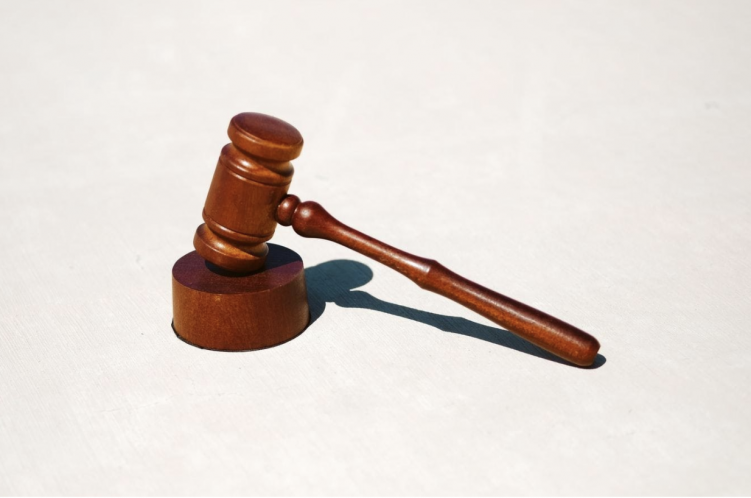Originally, copyright was only recognized in selected countries. Moreover, legal protection, as a rule, was provided only to the country’s own, but not to foreign citizens. International copyright, however, allows you to venture beyond the territorial nature of copyright and protect your rights abroad.
Modern international copyright law is a complex system of international treaties and agreements, but knowing its basics will be useful to everyone, especially given the surge of Internet and international trade. Today we will discuss the basics of international copyright protection.
Which International Norms Is Copyright Protected By?
International protection is ensured by adopting treaties that contain norms directly resolving certain copyright issues.
An important document is 1952 Universal Copyright Convention – the oldest historical document that still regulates these matters internationally. Although it’s operational, many of its norms have already been further enhanced and elaborated on by newer treaties.

Another important document is the Berne Convention. It protects authors’ interests around the world and, setting minimum standards binding for all member states. It is based on the following principles:
- Foreigners have the same copyright protection rights and obligations as the country’s citizens.
- Copyright and its protection are governed by the national law of the state in which legal protection is claimed.
- It gives basic guarantees for international legal protection of copyright, which does not prevent countries from establishing better norms.
WIPO Copyright Treaty of 1996, which unites 86 countries, added the following provisions:
- A prohibition to post and distribute intellectual property without the author’s permission, including sharing it online.
- Copyright applies only to work’s form, but not to ideas, methods, processes, or concepts as such.
- Computer programs are treated the same as all other works.
TRIPS, adopted in 1994, is the main international treaty governing the legal security of intellectual property under the World Trade Organization. This agreement governs copyright, patents, trademarks, proceeding in case of unfair competition, etc.
International litigation often requires document translation, when one needs to appeal to a different country’s court. In this case, people often need trustworthy translation or localization solutions. Their in-house translators are experienced in working with various documents and can provide a certified translation, which is often required.
These are main international documents that regulate protection, but national laws also play a big role when it comes to individual cases.

Nuances of International Copyright Protection
Berne convention states that any work of literary, scientific, and artistic domain, regardless of its mode or form of its expression, is automatically protected by law. Yet, one is not required to license their works, but it may be done so that they could be protected in court if infringement occurs.
However, a work cannot be protected globally under a single license – they work only in a country they are issued in. This means that national laws are not extraterritorial – their power only lies within a country.
Copyright protection duration may vary. Berne convention states that it lasts during the author’s life plus 50 years, but generally this duration is extended to plus 70 years, as regulated by various national laws such as, for example, US Copyright Act of 1976.
Copyright is registered with national bodies, such as the US Copyright Office, as well as collective management organizations around the world, which issue licenses and handle royalties.
Basically, one’s work is protected by both national and international law, but when it comes to any infringement that took place outside the country, the license owner will have to take legal action in a country where the infringement took place, and an entire process will usually be governed by that country’s national law and will be held in a language of that country. In such a case, many struggle with translating licenses and other crucial documents, as translation quality needs to be pristine. Pick Writers will help you find a proper service to handle your translations.
Having Learned More about International Copyright Protection
Hopefully, this article gave you a basic understanding of international copyright protection. However, this subject is very complex and dependent on national laws, which differ from country to country and can change. So, if you are interested to learn about copyright rules which may be applicable in your case, take a deeper look into national laws and international treaties your country is bound by.
BIO: Merissa Moore
Merissa is a writer and researcher with years of international experience. Her expertise is vast, which allows her to advise readers on pressing topics and issues that generally concern Merissa’s contemporaries. Her works help people with understanding various subjects and facilitate their further learning on the matter. Merissa loves her work, but in her free time also enjoys traveling and painting.


Originally, copyright was only recognized in selected countries. Moreover, legal protection, as a rule, was provided only to the country’s own, but not to foreign citizens. International copyright, however, allows you to venture beyond the territorial nature of copyright and protect your rights abroad.
Modern international copyright law is a complex system of international treaties and agreements, but knowing its basics will be useful to everyone, especially given the surge of Internet and international trade. Today we will discuss the basics of international copyright protection.
Which International Norms Is Copyright Protected By?
International protection is ensured by adopting treaties that contain norms directly resolving certain copyright issues.
An important document is 1952 Universal Copyright Convention – the oldest historical document that still regulates these matters internationally. Although it’s operational, many of its norms have already been further enhanced and elaborated on by newer treaties.
Another important document is the Berne Convention. It protects authors’ interests around the world and, setting minimum standards binding for all member states. It is based on the following principles:
WIPO Copyright Treaty of 1996, which unites 86 countries, added the following provisions:
TRIPS, adopted in 1994, is the main international treaty governing the legal security of intellectual property under the World Trade Organization. This agreement governs copyright, patents, trademarks, proceeding in case of unfair competition, etc.
International litigation often requires document translation, when one needs to appeal to a different country’s court. In this case, people often need trustworthy translation or localization solutions. Their in-house translators are experienced in working with various documents and can provide a certified translation, which is often required.
These are main international documents that regulate protection, but national laws also play a big role when it comes to individual cases.
Nuances of International Copyright Protection
Berne convention states that any work of literary, scientific, and artistic domain, regardless of its mode or form of its expression, is automatically protected by law. Yet, one is not required to license their works, but it may be done so that they could be protected in court if infringement occurs.
However, a work cannot be protected globally under a single license – they work only in a country they are issued in. This means that national laws are not extraterritorial – their power only lies within a country.
Copyright protection duration may vary. Berne convention states that it lasts during the author’s life plus 50 years, but generally this duration is extended to plus 70 years, as regulated by various national laws such as, for example, US Copyright Act of 1976.
Copyright is registered with national bodies, such as the US Copyright Office, as well as collective management organizations around the world, which issue licenses and handle royalties.
Basically, one’s work is protected by both national and international law, but when it comes to any infringement that took place outside the country, the license owner will have to take legal action in a country where the infringement took place, and an entire process will usually be governed by that country’s national law and will be held in a language of that country. In such a case, many struggle with translating licenses and other crucial documents, as translation quality needs to be pristine. Pick Writers will help you find a proper service to handle your translations.
Having Learned More about International Copyright Protection
Hopefully, this article gave you a basic understanding of international copyright protection. However, this subject is very complex and dependent on national laws, which differ from country to country and can change. So, if you are interested to learn about copyright rules which may be applicable in your case, take a deeper look into national laws and international treaties your country is bound by.
BIO: Merissa Moore
Merissa is a writer and researcher with years of international experience. Her expertise is vast, which allows her to advise readers on pressing topics and issues that generally concern Merissa’s contemporaries. Her works help people with understanding various subjects and facilitate their further learning on the matter. Merissa loves her work, but in her free time also enjoys traveling and painting.
Related Content: